关于立冬的8个小常识
关于立冬的8个小常识24 Solar Terms: 8 things you may not know about Start of Winter
The traditional Chinese solar calendar divides the year into 24 solar terms. Start of Winter, the 19th solar term of the year, begins this year on Nov 8 and ends on Nov 21.
中国传统二十四节气的第19个节气是立冬,今年的立冬从11月8日开始,11月21日结束。
Start of Winter is the first solar term of winter, which means winter is coming and crops harvested in autumn should be stored up.
立冬是冬季的第一个节气,意味着冬天来临,秋天收获的粮食应该储存起来了。
Here are eight things you should know about Start of Winter.
一起来了解一下关于立冬的8个小常识。
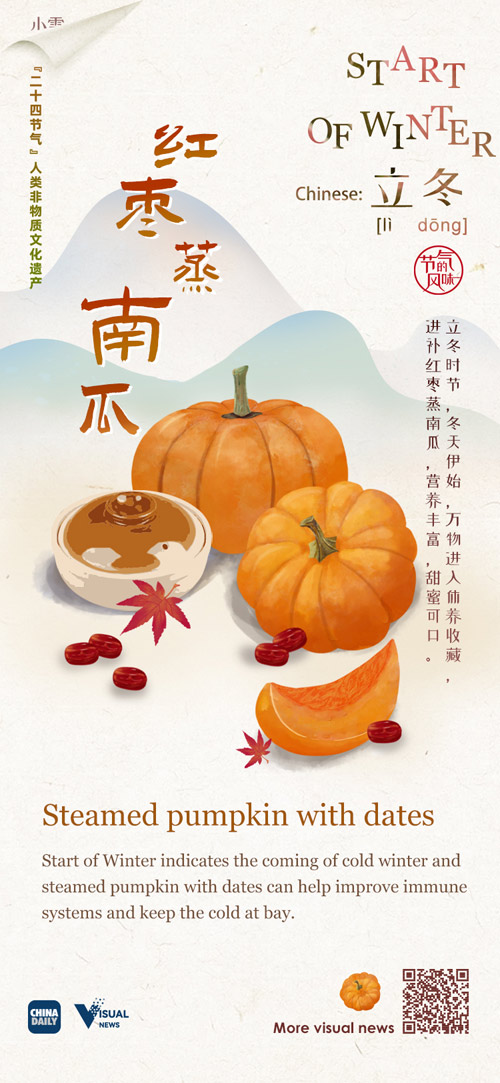
Beginning of winter or not
立冬标志着冬季的开始?未必。
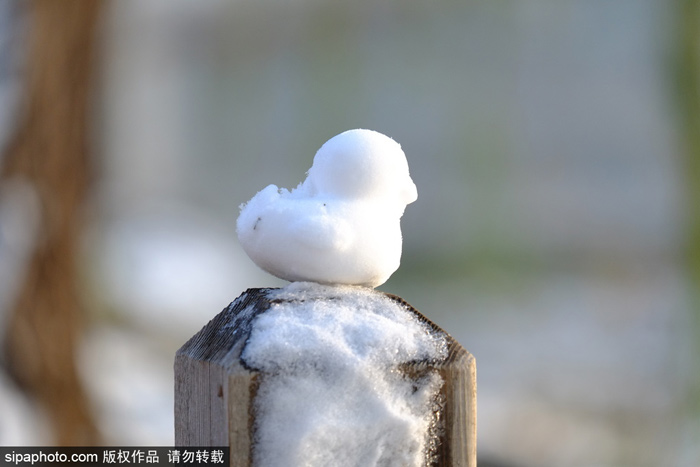
In ancient times, the Chinese people took the Start of Winter to be the beginning of the winter. However in fact, the Start of Winter is not the beginning of winter in terms of meteorology. The climate every year is different, so the beginning of winter could be quite different. And with the vast territory of China, winter of every area doesn’t begin at the same time.
在古代,中国人认为立冬节气代表着冬季的开始。事实上,从气象学上看,立冬这天不一定就是冬季的开始。每年的气候都不一样,因此冬季开始的时间也大不相同。中国的国土这么辽阔,各个地区的冬季也不是在同一时间来临。
Welcoming the winter in ancient times
古人迎接冬天的方式
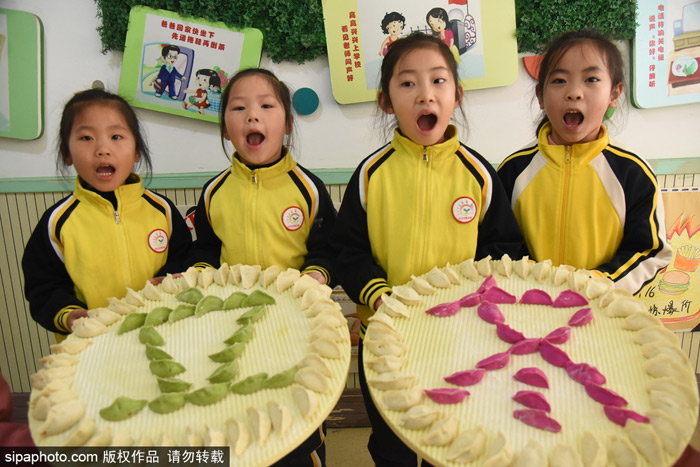
The four beginnings of the seasons were important festivals in ancient times. Before the Start of Winter, the ancient emperor would take a shower and have no more meat. On that day, the emperor would lead his officials to the suburbs and perform the ceremony of "welcoming the winter."
四季的开始在古代都是重要的节日。在立冬前,古代帝王会沐浴斋戒。立冬那天,皇帝会率领官员到郊区举办迎冬仪式。
Eating dumplings
吃饺子
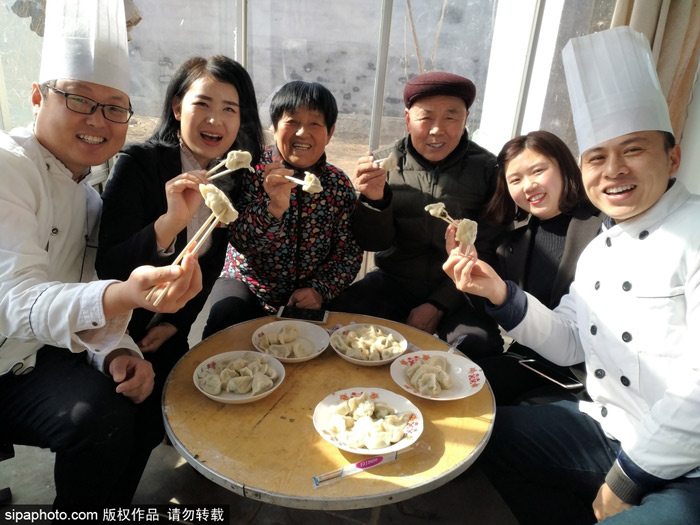
A legend has it that at the end of the Eastern Han Dynasty (AD25-220), "Medical Saint" Zhang Zhongjing saved many people in Henan province from a typhoid epidemic and their ears' from being frostbitten around Start of Winter.
传说在东汉末年(公元25-220年),“医圣”张仲景在河南治好了很多伤寒病人,还让他们的耳朵在立冬之际免于生冻疮。
He cooked mutton, hot peppers and herbs to dispel the cold and increase body heat. He wrapped these ingredients into a dough skin and made them into an ear shape. Since then, people have learned to make the food which became known as "dumpling". Today there is still a saying that goes "Eat dumplings on Start of Winter Day, or your ears will be frostbitten".
张仲景的方法是用羊肉、辣椒和驱寒暖身的药草一起炖煮,煮熟后用面皮包成耳朵形状。从那以后,人们学会了制作这种食物,也就是后来俗称的“饺子”。时至今日仍然有“立冬不端饺子碗,冻掉耳朵没人管”的说法。
Yifan Festival of Mulam Ethnic Minority
仫佬族的依饭节
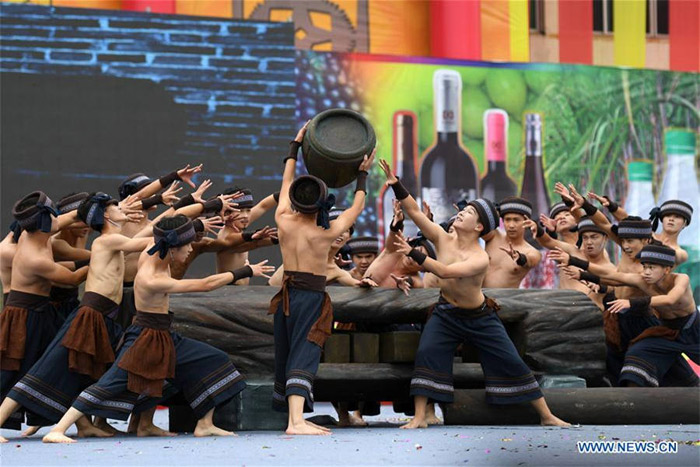
Yifan Festival is one of the most important festivals of the Mulam ethnic minority in Guangxi Zhuang autonomous region. It is held around the Start of Winter every three to five years and lasts one to three days. The festival includes inviting the god, offering sacrifices, asking the god to enjoy the sacrifice, singing praise of the god, drinking wine with the blood of chicken, and sending the god off.
依饭节是广西壮族自治区的仫佬族最隆重的节日之一。每隔三到五年立冬前后举行一次,为期一至三天。节庆活动包括请圣、占牲、劝圣、唱神、合兵和送圣。
"Nourishing the winter"
“立冬补冬”

On the first day of Start of Winter, there is a custom, "nourishing the winter", in Southeast China in places such as Fujian, Guangdong and Taiwan provinces. To prepare for the oncoming cold winter, people there like to eat high-calorie food such as chicken, duck, beef, mutton, and fish, which are usually stewed with the four Chinese medicines: angelica, ligusticum wallichii, Chinese herbaceous peony and rehmannia glutinosa libosch, to enhance the effectiveness of the nourishment.
在立冬这天,中国东南部的一些地区,比如福建、广东、台湾省,都有“补冬”习俗。为了应对即将到来的寒冬,那里的人会吃鸡、鸭、牛、羊、鱼肉这样的高热量食物,而且通常都会加入当归、川芎、白芍、熟地黄这四味中药炖成“四物汤”来提高滋补效果。
Eating Chinese pumpkins
吃倭瓜

In Tianjin, on the first day of Start of Winter, people eat dumplings stuffed with Chinese pumpkins (wogua). It is a common vegetable in North China. Generally, the pumpkins are bought in the summer and stored until the Start of Winter when they are taken out.
在天津,人们在立冬这天会吃倭瓜馅儿饺子。这是中国北方常见的一种蔬菜。一般倭瓜都是在夏季买的,储存到立冬时节再拿出来。
Eating tuanzi in Wuxi
无锡人冬至吃团子

On the first day of Start of Winter, people in Wuxi have a custom of eating tuanzi, a kind of traditional Chinese food made with rice. Most rural residents make tuanzi by themselves, while urban residents buy ready-made tuanzi. The tuanzi stuffing can be sweet bean paste, radish or lard.
立冬节气的第一天,无锡人有吃团子的习俗。团子是一种用大米(糯米)制成的中国传统食物。大多数农村居民都是自己做团子,城里人则购买现成的团子。团子馅儿可以是甜豆沙、萝卜或猪油。
Offering sacrifices to ancestors
祭祀祖先

The Start of Winter, when the autumn crops have been placed in storage, was the time of the festival for the people of the Manchu Eight Banners and Han Eight Banners in Benxi of Liaoning province. Incense was burned and sacrifices offered to ancestors. The Eight Banners (baqi) were administrative/military divisions during the Qing Dynasty (1644-1911).
到了立冬,秋粮一入库,辽宁本溪满族八旗和汉军八旗人家就开始过节,燃香祭祖。八旗指的是清朝(1644-1911年)满族的行政区划或军队编制。
英文来源:中国日报网
翻译&编辑:丹妮




